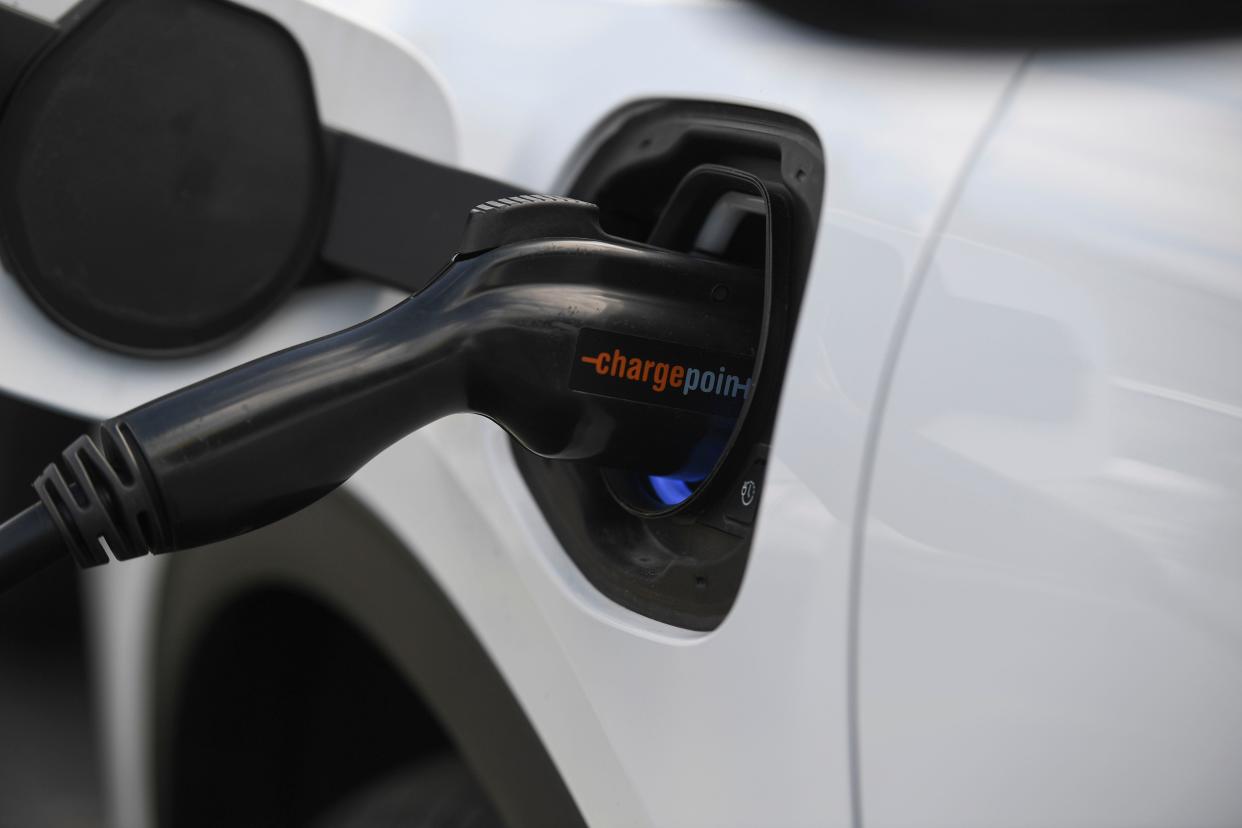Report: $23 billion in clean energy projects ranks Georgia second nation for creating jobs

A recent report ranks Georgia second in the nation for clean energy projects, creating nearly 30,000 clean energy jobs.
Throughout the state, new clean energy projects have spurred $23.12 billion in investment, the second highest in the nation, in four sectors − solar, batteries, electric vehicles and other clean energy technologies − according to the Climate Power Clean Energy Boom report.
The report notes $350 million invested in Augusta that resulted in 600 clean energy jobs created.
Climate Power is a national organization dedicated to educating Americans about climate progress, highlighting how clean energy investments benefit local communities. Climate Power’s mission is to protect climate progress while building the political will for future climate action.
The Clean Energy Plan as outlined in the Inflation Reduction Act is said to reduce electric power sector greenhouse gas emissions by 70% below 2005 levels by 2030 and attain carbon neutrality by 2050. Following the passing of the Clean Energy Plan, Georgia has transformed into a solar and electric vehicle battery manufacturing state.
In Georgia’s low-income communities, companies have announced $1.81 billion in investment and the creation of 3,515 clean energy jobs, while Georgia’s rural communities have seen project announcements totaling $1.88 billion in investment and 3,724 jobs.
What's new with Plant Vogtle?: Plant Vogtle Unit 4 connects to electric grid for the first time, says Georgia Power
Investing in clean energy for Augusta
Syensqo, formally known as Solvay Specialty Polymers, in Augusta will create approximately 500 local construction jobs and 100 highly-skilled local manufacturing jobs, according to a spokesperson. Details on the salary ranges were not immediately available.
"Syensqo is making a big bet on clean energy in the United States as one of our most important global growth drivers," said Kim Bratanata, a spokesperson for Syensqo. "Our new facility in Augusta will become the largest polyvinylidene fluoride (PVDF) production site in North America, providing material for more than 5 million EV batteries per year at full capacity. This expansion of our plant demonstrates our strong commitment to Augusta. We are proud to bring jobs and business to the region."
PVDFs can be used as a lining that is highly resistant to high temperatures and hot acids, notes the National Institutes of Health.
Here's how other Georgia locations will benefit:
Hyundai and LG Battery Plant, Savannah, $4.3 billion, 3,000 jobs
PHA Automotive Door Moving System Factory, Savannah, $67 million, 402 jobs
Q Cells Solar Manufacturing Plant, Cartersville, $2.3 billion, 1,900 jobs
Archer Aviation Electric, Covington, $118 million, 1,000 jobs
“One of the main things that we aim to do is educate Americans about the progress that we've been able to make with the Clean Energy Plan,” said Christina Polizzi, deputy managing director of communications for Climate Power. “These are jobs that often don’t require a four-year degree and you can sustain a family on them. That's why we put out these Clean Energy Boom reports. We want to make sure people understand that this legislation is impacting communities right now.”

Small business owners benefitting
There are 1.2 million small business owners throughout Georgia and many of them can benefit from energy savings.
Commercial building owners can receive a tax credit up to $5 per square foot to support energy efficiency improvements that deliver lower utility bills.
Other programs that will benefit small businesses include tax credits covering 30% of the costs of installing low-cost solar power and of purchasing clean trucks and vans for commercial fleets.
Eco-Friendly Beauty: Difference Makers: Augusta shopkeeper carefully chooses products with an eye on sustainability
Saving money on home energy bills
By upgrading appliances, residents can improve home energy efficiency and could save a total of 12,500 GWh of energy in Georgia, enough to power 578,000 Georgia homes, according to experts.
Polizzi said it’s important to champion efforts to combat climate change in the home.
“We know that these big oil and gas CEOs are doing everything they can to kind of slow this transition to clean energy because it affects their bottom line,” said Polizzi. “But it's so critically important for families to have this investment in clean energy, because it's going to make our air and water cleaner and bring jobs.”
This reporting content is supported by a partnership with several funders and Journalism Funding Funding Partners.
Erica Van Buren is the climate change reporter for The Augusta Chronicle, part of the USA TODAY Network. Connect with her at EVanBuren@gannett.com or on X: @EricaVanBuren32.
This article originally appeared on Augusta Chronicle: Georgia ranks second in nation for clean energy projects,

